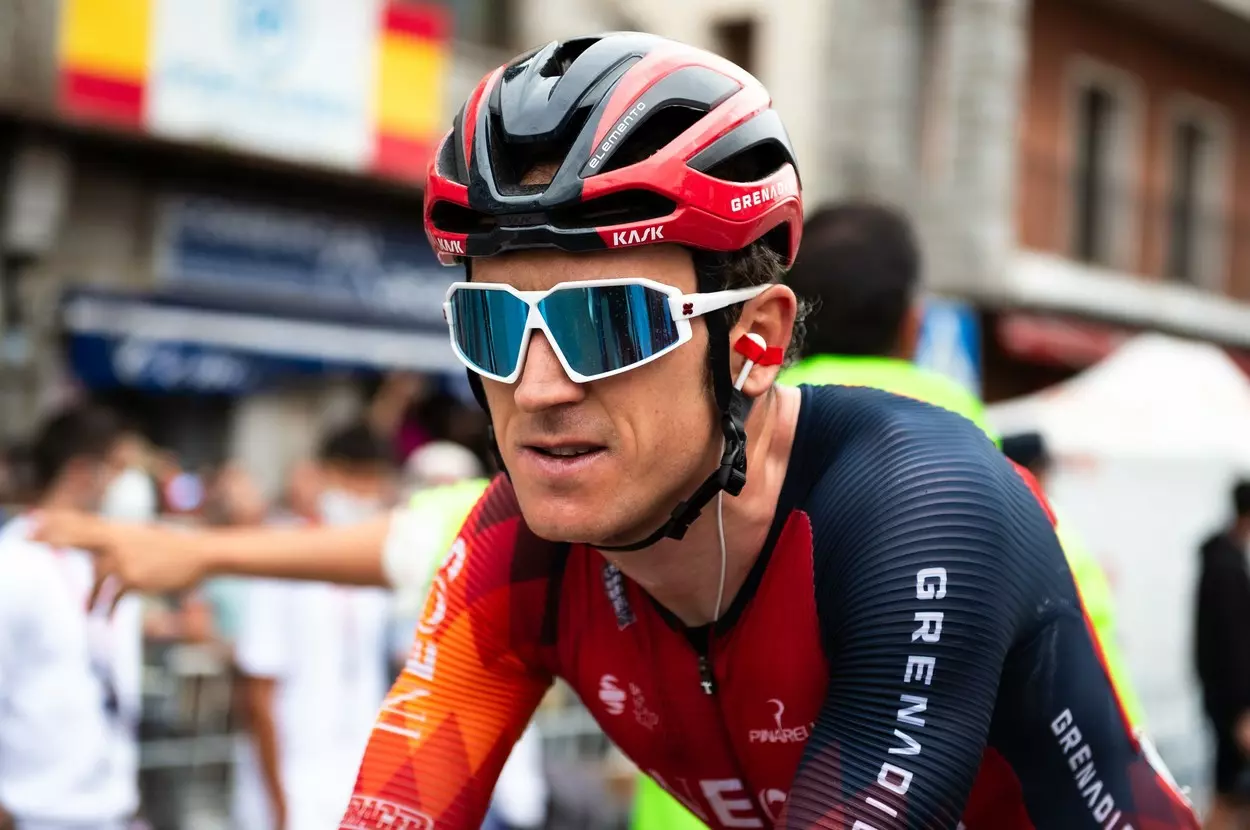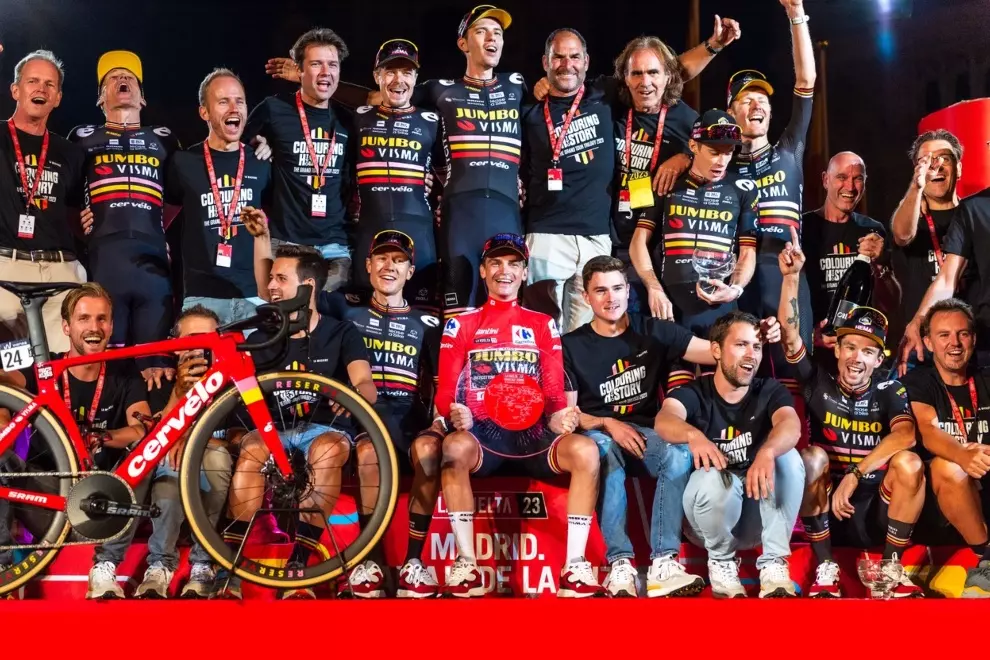During a recent installment of their podcast, Watts Occurring, a surprised Thomas shared, “I had no idea about this until you told me just before coming on.” His doubts resonated through the conversation, especially considering the known animosity between Remco Evenepoel and the Jumbo-Visma rivals. “The one thing I would say is that Remco hates Jumbo, and Jumbo hate Remco, so that’s not gonna work, is it? Unless they do different programmes,” Thomas remarked, bringing to light the seemingly insurmountable challenges of blending two opposing teams.
The conversation further delved into the imminent loss of Jumbo as a co-title sponsor for Jumbo-Visma by the end of 2024, a situation that Thomas and Rowe find inconceivable for such a dominant team. “I’m not trying to start any rumours or anything, I’m just saying. For me, the only thing I would say is why would Jumbo want to do that? They’ve just won three Grand Tours,” Thomas mentioned, echoing his confusion at the unexpected development.
Rowe added, “But do you know what that says to me, that’s a sad state of affairs for cycling if that team [Jumbo-Visma] can’t get a new headline sponsor,” voicing his concerns over the apparent difficulty in securing a new primary sponsor despite the team’s stellar performance and achievements.

Highlighting the team’s triumphs, Thomas expressed his dismay at the situation. “How can you not get another sponsor if you’ve done what you’ve just done like you’ve won the Tour [de France] the last two years, you’ve just dominated the last season, you’ve got the biggest riders, Van Aert in his own right is huge. That’s sad,” he said, emphasizing the severe disappointment this reflects for the sport as a whole.
Beyond the corporate implications, Thomas and Rowe highlighted the significant human aspect, emphasizing the potential job losses for riders and staff. Rowe questioned, “There are 50 riders under contract. So what happens if they merge? They’ve got 20 riders too many,” indicating the logistical nightmare and inevitable contract payouts, resulting in job losses and financial strain.
Echoing this sentiment, Thomas stated, “You might think it’s a good thing initially, but half of the jobs are going to go because you’ve got a maximum amount of riders anyway that you can have with the rules. Then why are you going to have 24 swannies (soigneurs) in the team?” His words paint a stark picture of the challenges and consequences this merger would impose.
This merger’s prospective downfall is a shared concern among other notable figures in the cycling community. The collective negative reaction emphasizes the “catastrophic consequences” anticipated, as expressed by Brian Holm and Philippe Gilbert, underscoring the widespread apprehension over the impact on the riders and the broader economy of professional cycling.




